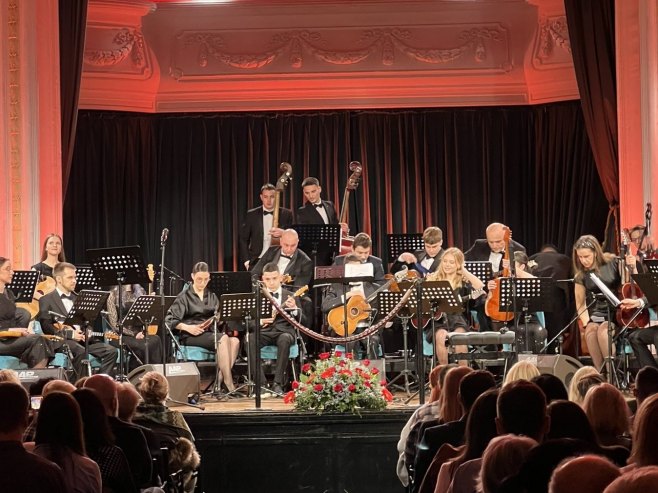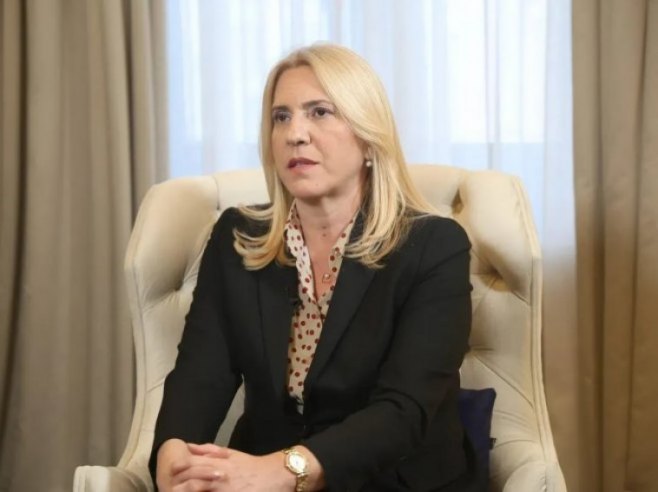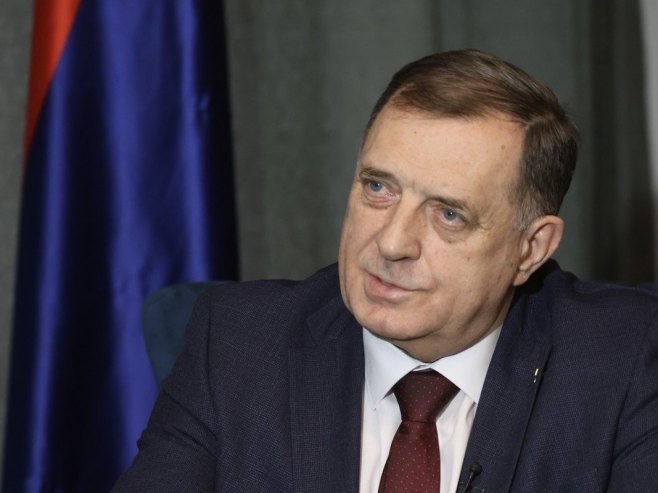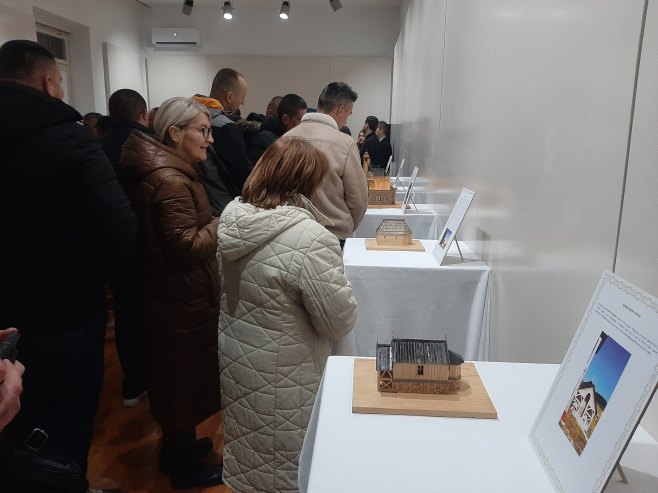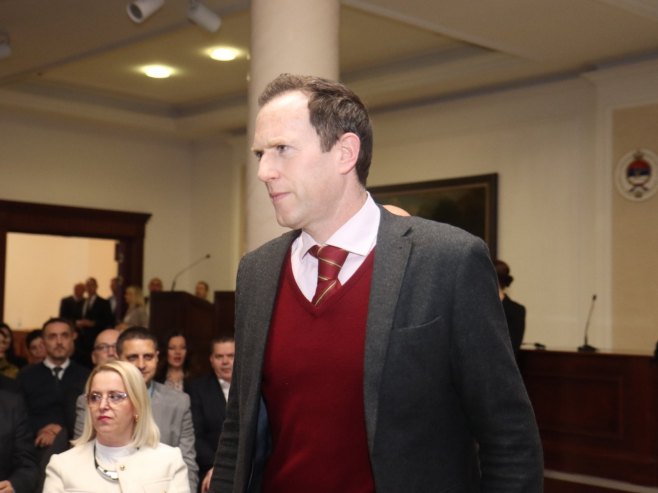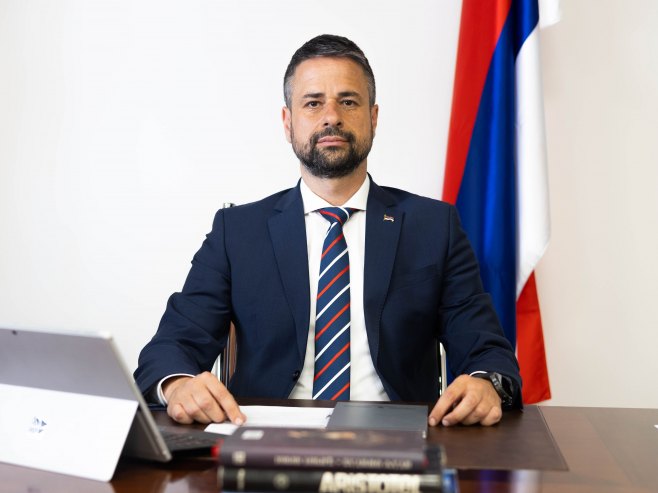Chairwoman and Serb member of the Presidency of BiH Željka Cvijanović stated that today we hear much more favorable messages, primarily from the United States, because the new administration of U.S. President Donald Trump has a different approach—without the intention of being a “policeman” in Bosnia and Herzegovina.
Speaking about the event in Dayton, Cvijanović said it was enough to look at the public address by the second-ranking official in the State Department and the messages conveyed about dialogue, preserving peace, and the notion that the actors in BiH should resolve problems themselves.
“These are all messages that reflect a completely different U.S. approach. The second-ranking official in the State Department doesn’t just come and speak off the cuff. He speaks based on the postulates and guidelines of the new policy he represents—Trump’s policy and that of his administration,” Cvijanović told ATV.
She noted that it seemed she was the only one who returned satisfied from Dayton, while her colleagues from the Federation of BiH were not and attempted to create false narratives through fake news.
“Obviously, they didn’t get what they came for, so they try to compensate by creating a false image of someone or by acting childishly, bragging about how many meetings they had,” Cvijanović said.
She added that the United States is shocked by the fact that someone other than domestic institutions is changing laws, and that this kind of approach from the American administration is a slap in the face to the unrealistic narratives and lies in BiH.
“This is a slap to the misinterpretation of the Dayton Agreement, a slap to those who want to present Republika Srpska as the problem. We’ve lived in lies for too long… The Dayton Agreement has been significantly altered, and because of these modifications, we’ve found ourselves in endless crises,” Cvijanović concluded.
She believes that if processes had unfolded as envisioned in the Dayton Agreement, BiH would have built internal trust within a decade, and no one would feel threatened.
“But the Dayton Agreement has been under heavy pressure from the beginning. The very fact that two years after the agreement—something it never foresaw—an ad hoc body like the Peace Implementation Council was created, which has no foundation in international law, indicated that we would be under pressure and experience systematic deviations from the agreement,” Cvijanović emphasized.
She underlined that the SNSD and President of Republika Srpska Milorad Dodik have opposed such experimental practices that citizens of BiH have endured for 30 years, stating that it is not normal for a foreigner to change laws, impose sanctions, and control domestic finances.
Cvijanović stressed that citizens do not want to be dictated to, have their elected officials removed, or have their institutional capacity destroyed.
“All of this was done under the guise of defending the Dayton Agreement, but in reality, everything was done against it,” said Cvijanović.
She concluded that it is wrong to believe that the place where decisions are made is wherever Christian Schmidt sits. Citizens expect elected officials to be the decision-makers, to bear responsibility for their actions, and for the electorate to decide at the polls whether to renew their mandate.
SNSD promotes dialogue
SNSD Vice President Željka Cvijanović said the party will continue to promote dialogue as a means of resolving internal issues—messages that are increasingly echoed by international actors.
Cvijanović emphasized that everyone acknowledges that dialogue has no alternative—except for some colleagues from Sarajevo whose motto is to avoid speaking with SNSD and to imprison the party’s leadership.
“Their motto is that we should yield every time a foreigner wants to impose something in their name and for their benefit—but we’re not doing that,” Cvijanović said.
She stated that political opponents from Sarajevo always blame Republika Srpska President and SNSD leader Milorad Dodik for everything because they haven’t been able to defeat him for years.
“No matter who came to power or left, they haven’t been able to break SNSD or Milorad Dodik,” Cvijanović noted, adding that the same goes for the opposition in Republika Srpska, whose behavior is counterproductive.
She emphasized that every political party bears responsibility for its decisions, including whether or not it chooses to engage in dialogue.
“We have a completely different approach to the state and the role of those holding office, as well as the kind of partnerships that should exist with the outside world,” Cvijanović said.
She pointed out that international actors are urging political figures in BiH to engage in dialogue until they reach a solution acceptable to all.
“In SNSD, every single one of us is ready to talk, and we don’t apply a selective approach as long as someone has political weight or can be part of the process—we’re open to discussion,” Cvijanović said.
She concluded that colleagues from the Federation of BiH do not understand how political processes function, as they tend to engage with a collection of minor actors rather than the most electorally relevant representative from Republika Srpska.
Source: RTRS

